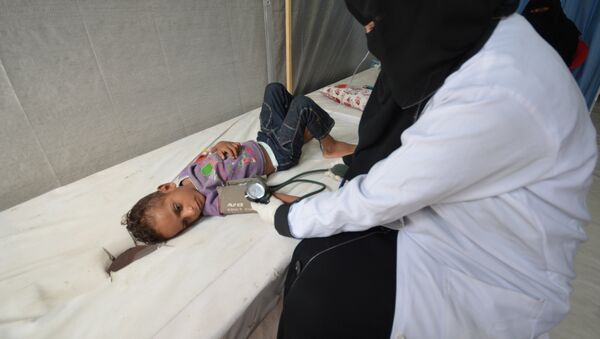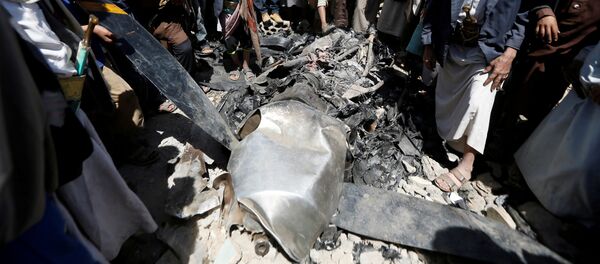The conflict in Yemen, which intensified when a Saudi-led, US-backed coalition launched massive airstrikes against the Houthi political opposition faction in 2015, has killed over 7,600 people and injured some 42,000, placing more than 20 million Yemenis in dire need of humanitarian assistance.
The deadly pandemic, caused by the bacterium Vibrio cholera, results in diarrhea and dehydration and has rapidly spread during the war as a result of poor hygiene and sanitation as well as a lack of access to clean water.
According to the World Health Organization, there are more than 815,000 suspected cholera cases and 2,156 deaths as a result of the current outbreak. Over 25 percent of all the cholera cases involve children under the age of five, while more than half of the 4,000 cases reported every day in Yemen affect children under 18.
Save the Children director for Yemen, Tamer Kirolos, declared that an outbreak this severe, aggravated by malnutrition and hunger, is "what you get when a country is brought to its knees by conflict, when a healthcare system is on the brink of collapse, when its children are starving and when its people are blocked from getting the medical treatment they need," the Guardian reported.
"There's no doubt this is a manmade crisis. Cholera only rears its head when there's a complete and total breakdown in sanitation. All parties to the conflict must take responsibility for the health emergency we find ourselves in," Kirolos stated.
According to UNICEF Yemen representative Sherin Varkey, "Whatever decline we're seeing now is due to the heroic efforts of workers at the scene."
"There are no signals that give us any reason for optimism. We know that both parties to the conflict are continuing with their blatant disregard of the rights of children. We're at a cliff and we're staring down and it is bottomless," Varkey said.
"There seems to be no hope."



